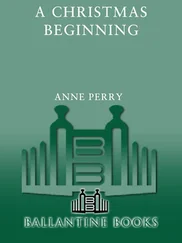She swept down the stairs again, as she had only an evening ago, to gasps of surprise, and either admiration or envy, depending upon whether it was Lord Salchester or Lady Warburton. The merest glance told her that Isobel was not yet there. Would she have the courage to come?
Omegus was at her elbow, his face carefully smoothed of expression, but she could not mistake the anxiety in his eyes.
“She is not going to run away, is she?” he said so quietly that Blanche Twyford, only a yard or two from them, could not have heard.
Vespasia had exactly the same fear. “I don’t know,” she admitted. “I think she is very angry. There is a certain injustice in putting the blame entirely upon her. If Bertie was so easily put off, then he did not love Gwendolen with much depth or honor.”
“Of course not, my dear,” Omegus murmured. “Surely that is the disillusion which really hurt Gwendolen more than she could bear.”
Suddenly it made agonizing sense. It was not any suggestion Isobel made. It was the exposing of the shallowness beneath the dreams, the breaking of the thin veneer of hope with which Gwendolen had deceived herself. She had not lost the prize; she had seen that it did not exist, not as she needed it to be.
“Was that really a cruelty?” she said aloud, meeting his eyes for the first time in their whispered conversation.
Omegus did not hesitate. “Yes,” he answered. “There are some things to which we need to wake up slowly, and the weaknesses of someone we love are among them.”
“But surely she needed to see what a frail creature he is before she married him!” she protested.
He smiled. “Oh, please, think a little longer, a little more deeply, my dear.”
She was surprisingly wounded, not bluntly as by a knife, but deeply and almost without realizing it for the first few seconds, as a razor cuts. She had not been aware until this moment how much she cared what Omegus thought of her.
Perhaps he saw the change in her face. His expression softened.
She found herself pulling away, her pride offended that he should see his power to wound her.
He saw that, too, and he ignored it. “She would have accepted him,” he said, still quietly. “She had no better offer, and by the time she had realized his flaws, he might have begun to overcome them, and habit, tenderness, other promises made and kept might have blunted the edge of disappointment, and given other compensations that would have been enough.” He put his hand on her arm, so lightly she saw it rather than felt it. “Love is not perfection,” he said. “It is tolerance, dreams past, and the future shared. A great deal of it, my dear, is friendship, if it is to last. There is nothing more precious than true friendship. It is the rock upon which all other loves must stand, if they are to endure. She should have made her own decision, not have it made for her by someone else’s desperate realization of defeat.”
She did not answer. His words filled her mind and left no room for any of her own.
Ten minutes later when Isobel still had not appeared, Vespasia decided to go and fetch her. She went back up the stairs and along the west corridor to Isobel’s room. She knocked and, when there was no answer, turned the handle and went in.
Isobel was standing before the long glass, looking critically at herself. She was not beautiful, but she had a great grace, and in her bronze-and-black gown she looked magnificent, more striking, more dramatic than Gwendolen ever had. Vespasia saw for the first time that that was precisely the trouble. Bertie Rosythe did not want a dramatic wife. He might like to play with fire, but he did not wish to live with it. Isobel could never have won.
“If you do not come now, you are going to be late,” Vespasia said calmly.
Isobel swung around, startled. She had obviously been expecting the return of her maid.
“I haven’t decided if I am coming yet,” she replied. “I didn’t hear you knock!”
“I daresay you were too deep in your own thoughts.” Vespasia brushed it aside. “You must come,” she insisted. “If you don’t, you will be seen as having run away, and that would be an admission of guilt.”
“They think I am guilty anyway,” Isobel said bitterly. “Don’t pretend you cannot see that! Even you with so …”
Vespasia had been at fault. “I did not intend my remarks to give them that opening,” she answered. “I am truly sorry for that. It was far clumsier than I meant it to be.”
Isobel kept her head turned away. “I daresay they would have come to the same place anyway, just taken a little longer. But it would have been easier for me had the final blow not come from a friend.”
“Then you may consider yourself revenged,” Vespasia said. “I am subtly chastened, and guilty of my own sin. Are you now coming down to dinner? The longer you leave it, the more difficult it will be. That is the truth, whoever is to blame for anything.”
Isobel turned around very slowly. “Why are you wearing purple, for heaven’s sake? Is anyone else in mourning?”
Vespasia smiled bleakly. “Of course not. No one foresaw the necessity of bringing it. I am wearing purple because it suits me.”
“Everything suits you!” Isobel retorted.
“No, it doesn’t. Everything I wear suits me, because I have enough sense not to wear what doesn’t. Now put on your armor, and come to dinner.”
“Armor!”
“Courage, dignity, hope—and enough sense not to speak unless you are spoken to, and not to try to be funny.”
“Funny! I couldn’t laugh if Lord Salchester performed handstands on the lawn!”
“You could if Lady Warburton choked on the soup.”
Isobel smiled wanly. “You’re right,” she agreed. “I could.”
But dinner was a nightmare. Aside from Omegus, no one greeted Isobel. It was as if they had not seen her, even though she came down the great staircase, dark satins rustling, and the outswept edge of her skirts actually brushed those of Blanche Twyford because she did not move to allow her past. A moment later, as Vespasia passed, Blanche stepped aside graciously.
The conversation was free-flowing, but Isobel was not included. She spoke once, but no one appeared to hear her.
When the butler announced that dinner was served, Omegus offered her his arm, because it was apparent that no other man was going to. Once they were seated, Lady Warburton looked at Lady Vespasia, then at Omegus.
“Am I mistaken, Mr. Jones, or did you lay down the rules of this medieval trial of yours with the intention that we were all to be bound by them or our own honor was also forfeit?”
“I did, Lady Warburton,” he replied.
“Then perhaps you would explain them to me again. You seem to be flouting what I understood you to say.” She looked meaningfully at Isobel, then back again at Omegus with a wide challenging gaze.
He colored faintly. “You are right, Lady Warburton,” he conceded. “I am as bound as anyone else, but I am still hoping that Mrs. Alvie will reconsider her refusal, and then a final decision must be made. I choose to wait until then before I act.”
“I suppose you have that privilege,” she said grudgingly. “At least while we are at Applecross.”
The meal began, and Isobel was served exactly as everyone else was, but when she requested that the salt be passed to her, Fenton Twyford, who was next to her, looked across the table at Peter Hanning and asked his opinion on the likely winner of the Derby next year.
“Would you be kind enough to pass me the salt?” Isobel reiterated.
“I must say I disagree,” Twyford said loudly in the silence. “I think that colt of Bamburgh’s will take it. What do you think, Rosythe?”
Isobel did not ask again.
Читать дальше










